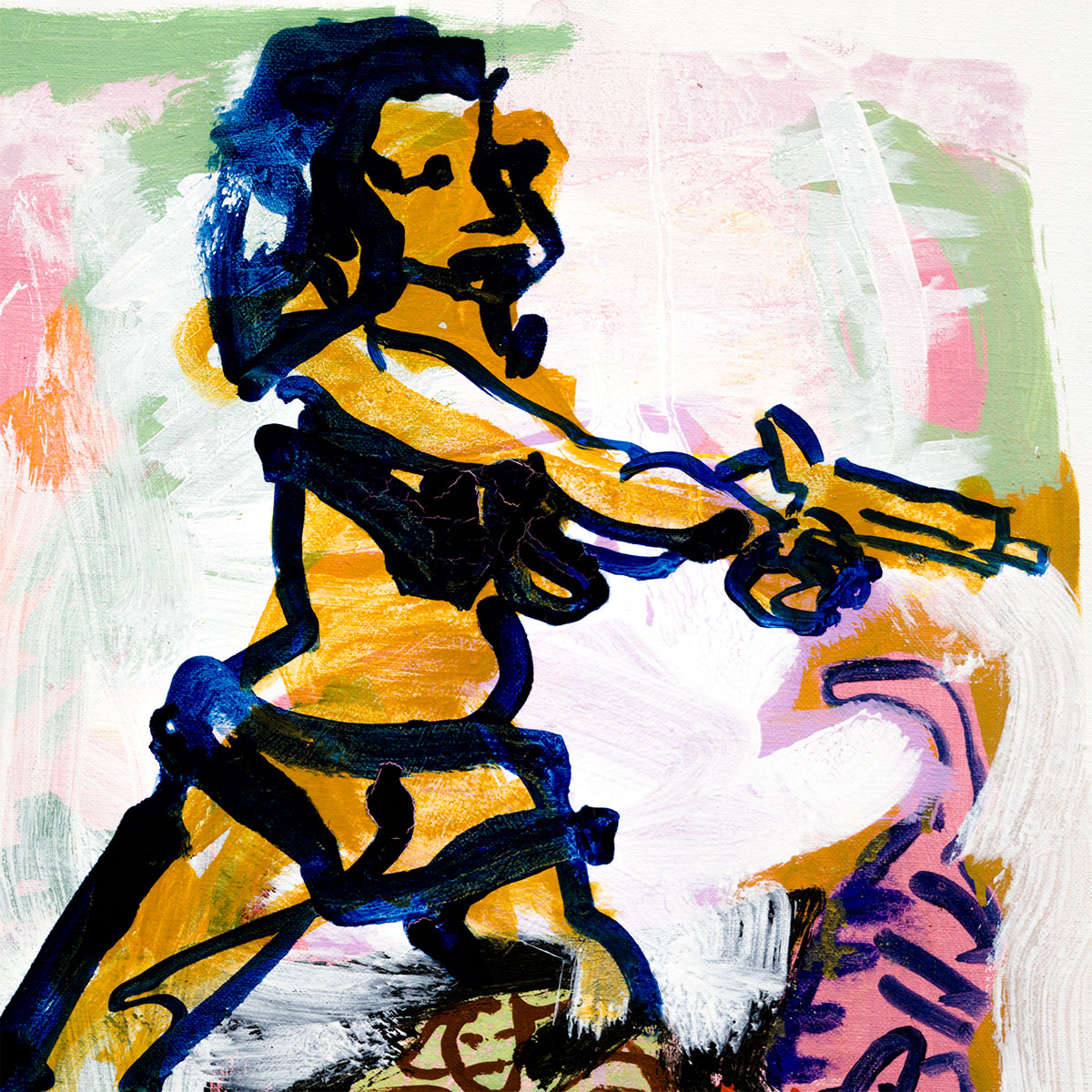No one confronts his demons as kindly as Niels Reumert does, remarked an art collector during the artist’s exhibition in London in 2010. Niels Reumert’s career spans five decades in which he has explored his demons unapologetically, in a way so few of us dare to do. This is perhaps one of the reasons why he is even more relevant today than at the beginning of his electrifying artistic journey. The world has changed tremendously since 1971 and so has the artist. The one constant in Reumert’s artistic journey through the years is his rejection of the tame. Reumert was considered a young Danish wild animal (“et ungt dansk vilddyr”) initially by one of Denmark’s most famous art critics, the late Piere Lubecker, when the artworld first started paying serious attention, and it stuck. Today, despite both his work and the world around him metamorphosing, Reumert remains staunchly defiant – ahead of his time. Reumert’s lack of deference for the artistic convention of the day saw him painting as a neo-(abstract) expressionist long before the movement became part of the art zeitgeist of the 1980s by names such as Basquiat.
Reumert is a traditional artist only in that he paints with oil on canvas. That is where tradition ends. The brushstrokes are determined, masculine and often dark. But in the darkness of the petrol blue or haunting black, we find feminine shapes and contemplative themes. Mostly, we find a conversation with nature as a harbinger and, perhaps, an avenger of civilization. Birds, primates, tortoises, crabs, shrimps, foxes, dogs, cobras and frogs flutter, slither, creep up, leap and propel themselves, sometimes hesitantly and sometimes aggressively, from Reumert’s works. But there is a force behind all that animal potency, and that is an indomitable spirit – one that inhabits artist and spectator and commands both to stand in awe of nature. Reumert invites the viewer to contemplate the speed of development and contrasts it with human nature. We see computers, binary mathematics, war, technology, violence, and love all interrogated and concluded through an animal lens and an atavistic spirit.
The most complex and most primitive animal on Reumert’s canvas is man himself, woman herself. In a series of erotic works Reumert skillfully plays with love and lust as interchangeable states of the human condition. Man and woman are closely intertwined, twisted with desire, transcendent. The works are explicit yet tender and soulful. Rather than the animalistic, they evoke the powerful but tender side of sex – a game the wild human animal plays to continue its exquisite quest for meaning.
Niels Reumert (b. 1949) was educated at Erling Frederiksen’s School of Drawing at Glyptoteket Copenhagen (1969), The Royal Danish Academy of Fine Arts (1974) and Accademia di Belle Arti, Venice (1972).
Reumert debuted in 1971 as part of the artist group Violet Sun. His first solo shows were at Kunstforeningen in Copenhagen in 1974 and Galloperiet in the free state of Christiania in 1977. He presented over 40 solo shows in the following 40 years.
Reumert studied and painted in New York City (USA), Italy, France, Germany, Greece, Mexico, Nepal, India, Sri Lanka, and Cambodia.
Reumert’s work is represented at Statens Museum for Kunst (The National Gallery of Denmark), North Jutland Art Museum (DK), Randers Art Museum (DK), Statens Kunstfond (Danish Arts Foundation), The Carlsberg Foundation (DK), Henie-Onstand Kunstsenter (Oslo, Norway), Oslo City Art Collection (Norway), Library of Congress (Washington D.C.,USA ), Hafnarborg (Iceland), Schiller-Nationalmuseum (Marbach, Germany), Deutsche Bibliotek (Frankfurt am Main, Germany), Bavarian State Library (Munich, Germany), and The Americas Collection (Nicaragua), among many others.
In 2009, the Royal Library in Copenhagen, Denmark established a Niels Reumert archive.
